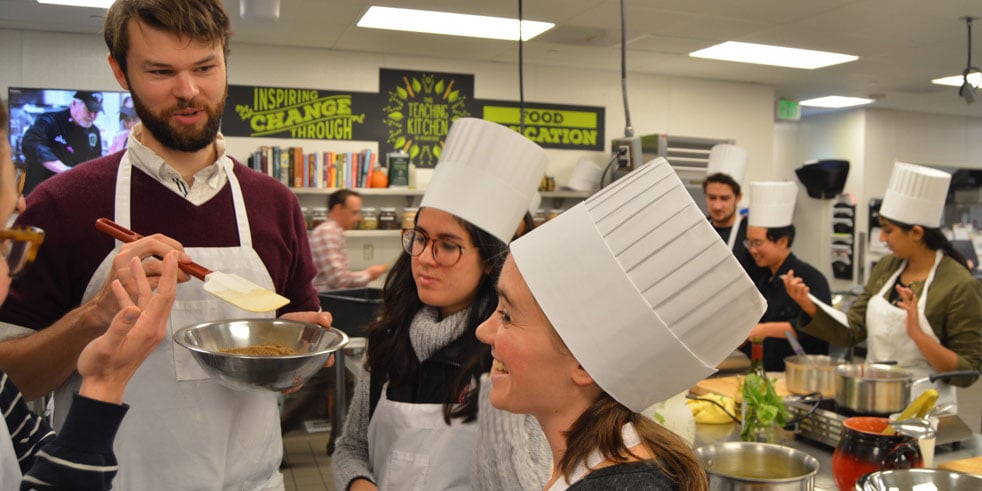Have you ever watched HBO’s hit series “Game of Thrones,” seen the lavish feasts and wondered what it would be like have one?
At Stanford, you can satisfy your appetite with MUSIC 133: “Food, Text, Music: A Multidisciplinary Lab on the Art of Feasting.” Marisa Galvez, associate professor of French and Italian, and Jesse Rodin, associate professor of music, teach students about medieval food – from its presentation to its utensils to its accompanying music. The class covers how these feasts relate to contemporary issues such as sustainability and elitism.
MUSIC 133 convenes from 4 to 7 p.m. on Fridays at the Arrillaga Teaching Kitchen. Students discuss assigned readings before spending at least an hour cooking a recipe from a medieval cookbook. Recipes range from saffron soups to rose pudding. After cooking, the students eat their creations and discuss the week’s thematic focus; in a music-focused class, for example, students sang while eating their meal.
In addition to hands-on aspects, each class features guest lecturers from Stanford or from relevant fields. One class included singers from a medieval ensemble.
Course member Emma Grover ’20 strongly recommended the class to students from any discipline. The current class contains not only humanities and social science majors but also engineering students.
Grover said it is interesting to see familiar ingredients appear in different combinations that lead to unexpected results. Most medieval foods contained combinations of sweet and savory that are unlike the stereotypically bland or over-spiced versions of recipes today.
“[We cooked] this pie that had spinach, ricotta cheese, salt, pepper and lots of sugar,” Grover said. “It was completely bizarre.”
Grover, who has background in medieval history, also said that the class clarifies misconceptions about medieval traditions. For example, cutlery and utensils were not available during medieval times, so pasta was eaten with one’s hands.
“[The real nature of medieval feasts] turns out to be so different from the literary depiction,” Grover said.
Contact Christina Pan at capan ‘at’ stanford.edu
